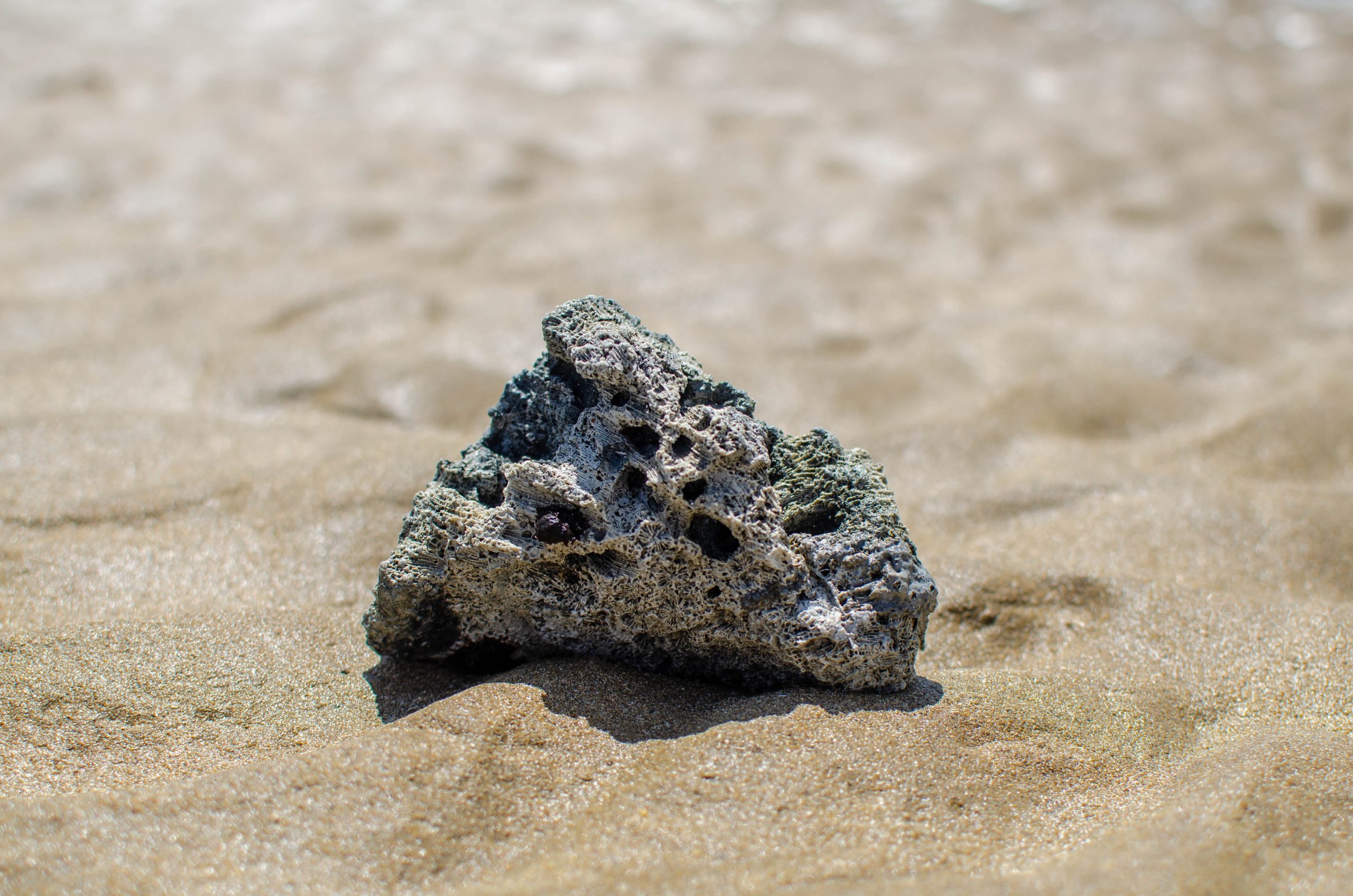Coral reefs thrive beneath the sparkling blue waters as stunning ecosystems teeming with life. These underwater wonders provide essential habitats for countless marine species. However, an unexpected threat looms over these delicate environments, originating far beyond the ocean’s reach.
While the connection may not be immediately obvious, the consequences of agriculture reach far and wide, eventually affecting the fragile balance of coral reef ecosystems. Farms, fields, and plantations that sustain our growing population have unintended repercussions extending into our oceans’ depths. From chemical runoff to sedimentation, the effects of agriculture leave a lasting impact on coral reefs, compromising their resilience and survival.
In this article, we uncover the hidden impact of agriculture on coral reefs. We delve into the perils of agricultural runoff and water pollution as chemicals and excess nutrients make their way into the ocean, causing devastating consequences for corals and the creatures that depend on them. We explore the dangers of sedimentation, as eroded soil from agricultural lands smothers coral communities, hindering their growth and disrupting their vital relationships.
Sustainable agricultural practices must take center stage, striking a balance between meeting the needs of a growing population and safeguarding the delicate underwater worlds intertwined with our well-being.
Join us on this enlightening journey as we uncover the hidden consequences of agriculture beneath the surface. Together, let us explore the urgent need for change and the paths toward a harmonious coexistence between agriculture and the precious coral reefs that enchant and sustain life in our oceans’ depths.
Agricultural Runoff and Water Pollution
Agricultural runoff poses a significant threat to coral reefs due to the introduction of chemicals, fertilizers, and excess nutrients into nearby water bodies. Research and statistics reveal the extent of this impact:

Chemical runoff
Pesticides, herbicides, and fertilizers used in agriculture can leach into waterways through runoff, eventually reaching coastal areas and coral reefs. A study by Burke et al. (2019) found that pesticide concentrations in runoff water were significantly higher in agricultural areas, indicating the potential for these chemicals to enter marine ecosystems.
Excess nutrients
Agricultural practices often involve the application of fertilizers, which contain high levels of nitrogen and phosphorous. When runoff carries these nutrients into coastal waters, they can cause eutrophication, leading to harmful algal blooms. A United Nations Environment Programme (UNEP) report states that excessive agricultural nutrients contribute to 60% of the global decline in coral reef health.
Water quality degradation
Poor water quality resulting from agricultural pollution adversely affects coral reef ecosystems. Sedimentation and nutrient enrichment can lead to decreased water clarity and light penetration, affecting the photosynthetic ability of corals and their symbiotic algae. The diminished light availability can impede coral growth and compromise their overall health.
Studies such as those conducted by Fabricius et al. (2019) and Udy et al. (2020) highlight the correlation between agricultural runoff and declines in coral reef health. These studies demonstrate the negative impact of agricultural practices on water quality and the subsequent effects on coral ecosystems.
In addition to specific research findings, statistics further emphasize the scale of the problem. The UNEP estimates that agriculture contributes to up to 50% of global nutrient pollution in coastal waters. Furthermore, the World Resources Institute reports that nutrient runoff affects about 25% of global land, which can lead to harmful algal blooms and subsequent coral reef degradation. The evidence from research and statistics underscores the urgency of addressing agricultural runoff and water pollution to protect coral reefs. Implementing proper nutrient management strategies, reducing harmful chemicals, and promoting sustainable agricultural practices are crucial steps toward mitigating the detrimental impact of runoff on coral reef ecosystems.

Sedimentation and Coral Smothering
Sedimentation, resulting from soil erosion and improper land management practices in agriculture, poses a significant threat to coral reefs. When sediments from agricultural lands reach coastal waters, they settle on coral reefs, leading to smothering and detrimental consequences for these fragile ecosystems. Relevant research and statistics shed light on this issue:
Soil erosion
Unsustainable agricultural practices such as deforestation, intensive farming, and improper soil management contribute to soil erosion. A study by Wilkinson et al. (2021) highlights how land degradation due to agriculture is a major driver of sedimentation in coastal areas, including coral reef environments.
Sediment runoff
Runoff carries Eroded soil particles into nearby water bodies and eventually reaches coral reefs. These sediment-laden waters can directly impact corals by covering their surfaces, limiting their access to sunlight, and interfering with their feeding and growth processes. A study by Perry et al. (2018) found that sedimentation caused by agriculture was a significant factor contributing to the decline of coral reefs in the Great Barrier Reef.
Impaired growth and reproduction
Sedimentation on coral reefs reduces light penetration, hindering the photosynthesis of the symbiotic algae that provide essential nutrients to corals. It leads to declining coral growth rates and weakens their reproduction ability. Research by Alvarez-Filip (2020) indicates that sediments can negatively affect coral reproduction and settlement, potentially impairing the recovery and resilience of coral populations.
Statistics further highlight the widespread issue of sedimentation affecting coral reefs. The Global Coral Reef Monitoring Network (GCRMN) reports that sedimentation from land-based sources is one of the primary causes of coral reef degradation worldwide. The GCRMN also estimates that approximately 80% of nearshore coral reefs are threatened by sedimentation, with agricultural runoff being a significant contributor.
Efforts to address sedimentation and coral smothering include:
- Implementing erosion control measures.
- Promoting sustainable land management practices.
- Establishing buffer zones between agricultural areas and coral reefs.
By reducing sediment runoff, it is possible to mitigate the harmful impacts on coral reefs and preserve their health and biodiversity. Research findings, such as those mentioned above, underscore the importance of tackling agricultural sedimentation to safeguard coral reef ecosystems. Through collaborative efforts between agricultural industries, conservation organizations, and policymakers, it is possible to minimize sedimentation and protect these fragile underwater habitats for future generations.

Chemical Pollution and Coral Health
Chemical pollution stemming from agricultural activities poses a significant threat to the health and vitality of coral reefs. Pesticides, herbicides, and fungicides used in agriculture can find their way into marine environments, directly impacting coral health and disrupting the delicate balance of reef ecosystems. Relevant research and statistics shed light on the consequences of chemical pollution on coral reefs:
Pesticide impact
Agricultural pesticides, such as insecticides and herbicides, can enter coastal waters through runoff or agricultural spraying. These chemicals can have toxic effects on corals, compromising their growth, reproduction, and overall resilience. Research conducted by Jones et al. (2019) demonstrated that exposure to certain pesticides can weaken coral immune systems, making them more susceptible to diseases.
Herbicide and fungicide effects
Herbicides and fungicides used in agriculture can also harm coral health. These chemicals can inhibit the growth of symbiotic algae that corals rely on for nutrients and energy. A study by Vega Thurber (2020) revealed that exposure to commonly used herbicides could disrupt coral-algae symbiosis and impair coral health and survival.
Increased vulnerability to bleaching
Chemical pollution and other stressors, such as rising water temperatures, can exacerbate coral bleaching events. Bleaching occurs when corals expel their symbiotic algae, resulting in a loss of color and nutrient supply. Research by Hughes et al. (2018) indicates that chemical pollution can amplify the negative impacts of thermal stress on corals, leading to higher bleaching rates and mortality.
Statistics highlight the widespread nature of chemical pollution in coastal areas. The National Oceanic and Atmospheric Administration (NOAA) estimates that 80% of pollution entering the marine environment originates from land-based sources, including agricultural runoff. Moreover, a report by the International Union for Conservation of Nature (IUCN) reveals that pesticides from agriculture are among the leading causes of water pollution in coral reef regions.
Addressing chemical pollution requires adopting sustainable agricultural practices, including reduced pesticide use, better application methods, and promotion of organic farming techniques. Encouraging integrated pest management strategies and promoting less harmful alternatives can also mitigate the impact of chemicals on coral reefs.
By understanding the consequences of chemical pollution on coral health, researchers and conservationists can work towards implementing policies and practices that reduce the exposure of coral reefs to harmful agricultural chemicals. Through collaboration and awareness, it is possible to safeguard these extraordinary ecosystems and ensure their preservation for future generations.
The impact of agriculture on coral reefs is a silent but profound threat to these breathtaking underwater ecosystems. By exploring agricultural runoff and water pollution, sedimentation and coral smothering, and chemical pollution and coral health, we have uncovered the intricate ways our land-based practices harm these delicate habitats.
Agricultural runoff, laden with chemicals and excess nutrients, infiltrates coastal waters, disrupting the fragile balance of coral reef ecosystems. Sedimentation smothers corals, impeding their growth and hindering their ability to thrive. Chemical pollution weakens their defenses, making them susceptible to disease and bleaching.
Now, armed with knowledge, we have the power to make a difference. By embracing sustainable agricultural practices, promoting responsible nutrient management, and advocating for better land management techniques, we can reduce the detrimental impact of agriculture on coral reefs.
But our responsibility extends beyond individual action. We must raise awareness, engage in informed discussions, and demand policy changes that prioritize the protection of coral reefs. Let us support research, conservation efforts, and initiatives to safeguard these magnificent ecosystems.
In conclusion, the fate of coral reefs lies in our hands. Together, we can ensure a harmonious future where agriculture and coral reefs coexist. Join us in our quest to learn more about the impact of agriculture on coral reefs, to spread the word, and to take meaningful action. Together, let us be the guardians of these underwater wonders, preserving their beauty and diversity for generations to come.
